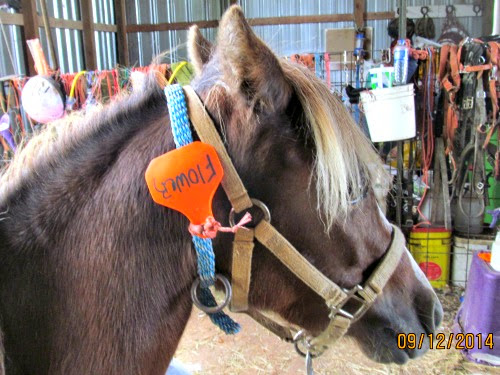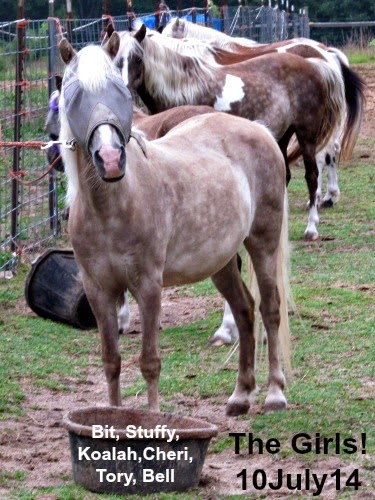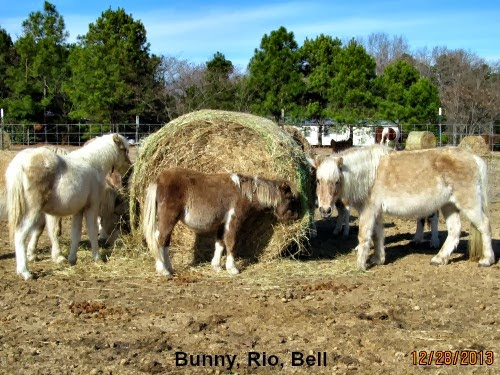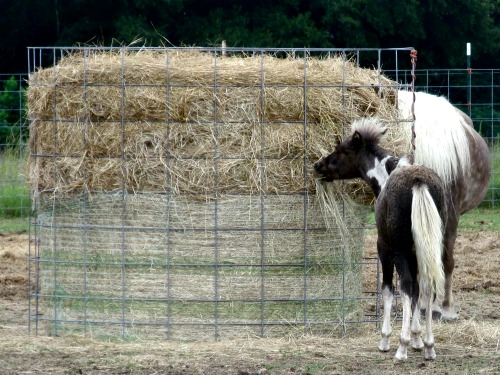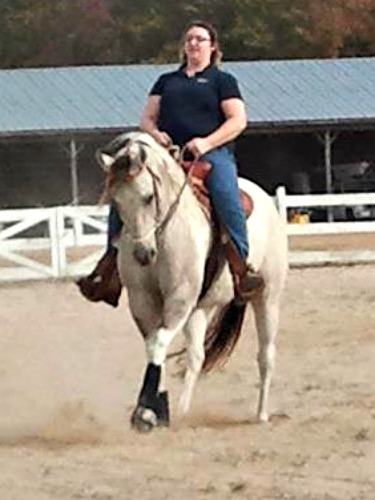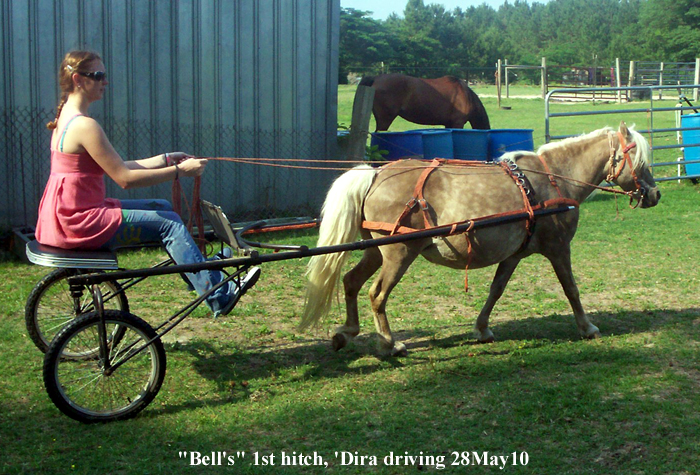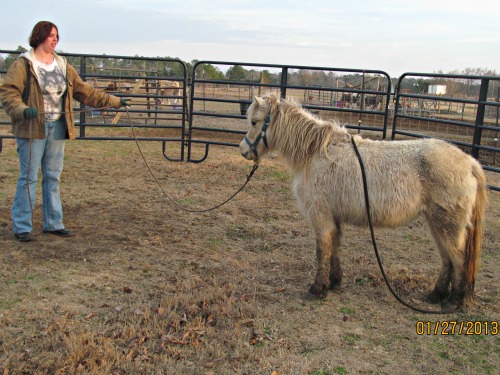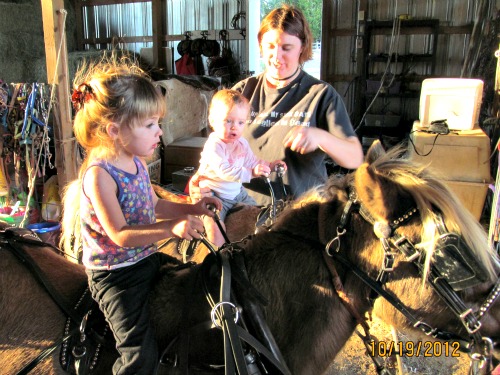QuiltinMom
Active Member
Well, some of you may have followed my story in this thread: We will be going in just a couple of days to pick up our first mini, eh, first horse EVER!!! We don't even know where to begin as far as training. We are comfortable with the needs of the horse to take care of it and provide the shelter, food, water, etc.
When we bring our first mare home she will be kept in a stall for the first several days other then walking her with a lead rope. I have read that you shouldn't just turn them out in a new pasture, that they may get scared and bolt. Also the pasture we have fenced off is currently grass (we have trimmed out all of the weeds and have cut the grass as short as the mower will mow it). We know that she can only go out for a short time each day. When she is out in the pasture we will keep her on a lead and walk her around.
This is where my questions begin........I want to make sure we don't develop any bad habits, her or us. We need to know how to walk her properly and the words to use to communicate with her. The current owners of her started working with her some so she is halter broke and walks very nicely. She will also back up. She has had a saddle on her, but I don't think she was ever ridden. That is about all I know.
I have a book called "Mini Manual for New Owners A Newly Revised and Updated Guide for the First Time Miniature Horse Owner". I also have "Train Your Miniature Horse to Drive". And I have ordered "Training and "Showing Your Miniature Horse in Halter Classes". This last one should arrive some time this week.
So, can you recommend somewhere I can learn the very, very basic "groundwork". I mean, like the sounds you make when trying to get your horse to move (kisses), etc. Are these standard across the country?
I know it would be best to find a mentor and we have tried. Most of our friends that have horses don't know much about Miniatures and don't show very much. I would like to buy some DVD's and watch them, but again, I don't know which one would be the very first one to start with. I also read in an older thread on this forum about Giddy Up Flix.com. That looks like it will be an invaluable resource to be able to rent the DVD's before purchasing them. THANKS to whomever posted about that!!!
So, in an effort of trying to be organized and ready where can you tell me to begin?
THANKS!!!
When we bring our first mare home she will be kept in a stall for the first several days other then walking her with a lead rope. I have read that you shouldn't just turn them out in a new pasture, that they may get scared and bolt. Also the pasture we have fenced off is currently grass (we have trimmed out all of the weeds and have cut the grass as short as the mower will mow it). We know that she can only go out for a short time each day. When she is out in the pasture we will keep her on a lead and walk her around.
This is where my questions begin........I want to make sure we don't develop any bad habits, her or us. We need to know how to walk her properly and the words to use to communicate with her. The current owners of her started working with her some so she is halter broke and walks very nicely. She will also back up. She has had a saddle on her, but I don't think she was ever ridden. That is about all I know.
I have a book called "Mini Manual for New Owners A Newly Revised and Updated Guide for the First Time Miniature Horse Owner". I also have "Train Your Miniature Horse to Drive". And I have ordered "Training and "Showing Your Miniature Horse in Halter Classes". This last one should arrive some time this week.
So, can you recommend somewhere I can learn the very, very basic "groundwork". I mean, like the sounds you make when trying to get your horse to move (kisses), etc. Are these standard across the country?
I know it would be best to find a mentor and we have tried. Most of our friends that have horses don't know much about Miniatures and don't show very much. I would like to buy some DVD's and watch them, but again, I don't know which one would be the very first one to start with. I also read in an older thread on this forum about Giddy Up Flix.com. That looks like it will be an invaluable resource to be able to rent the DVD's before purchasing them. THANKS to whomever posted about that!!!
So, in an effort of trying to be organized and ready where can you tell me to begin?
THANKS!!!




